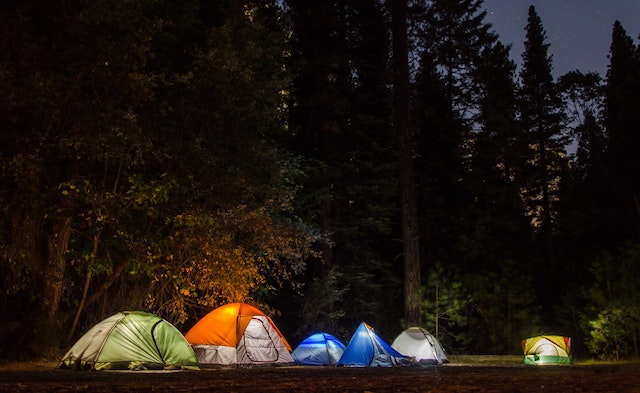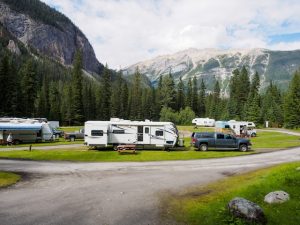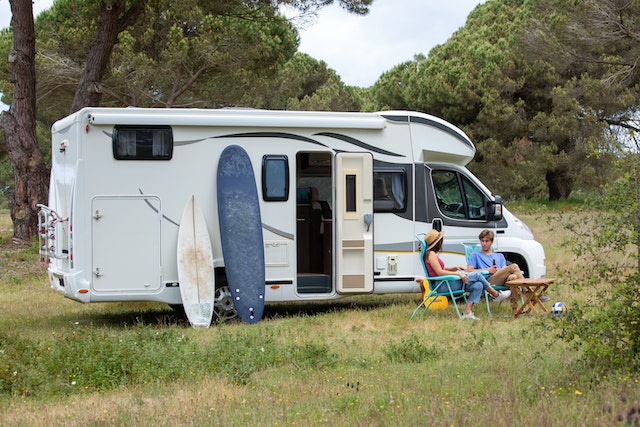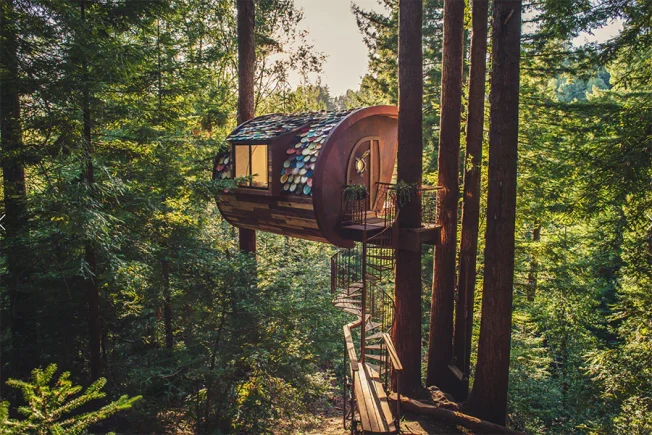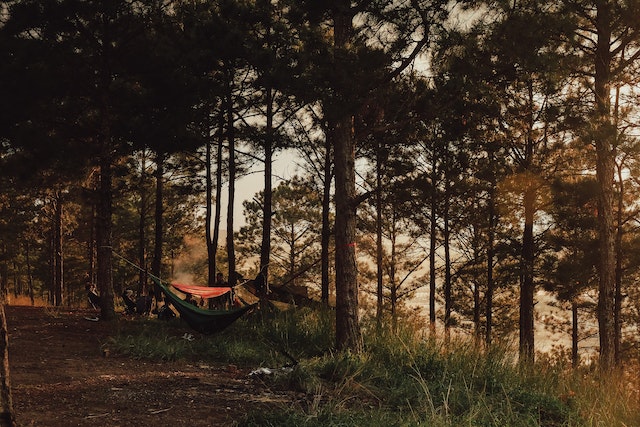Did you know that camping is one of the most popular outdoor activities in the United States, with over 40 million people participating each year? Whether you are a seasoned camper or a beginner, it’s important to prioritize safety during your camping trips. By following a few simple tips and advice, you can ensure a safe and enjoyable experience in the great outdoors.
In this article, we will provide you with essential camping safety tips and advice that will help you make the most of your camping adventure while staying safe. We will cover topics such as:
- Choosing a safe campsite
- Properly setting up and maintaining your campsite
- Fire safety and prevention
- Wildlife awareness and encounters
- Emergency preparedness and first aid
By being prepared and informed, you can confidently navigate the potential challenges that come with camping, and create lasting memories in nature while feeling a sense of belonging to the camping community.
So let’s dive in and explore the world of camping safety together!
1. Choosing a Safe Campsite
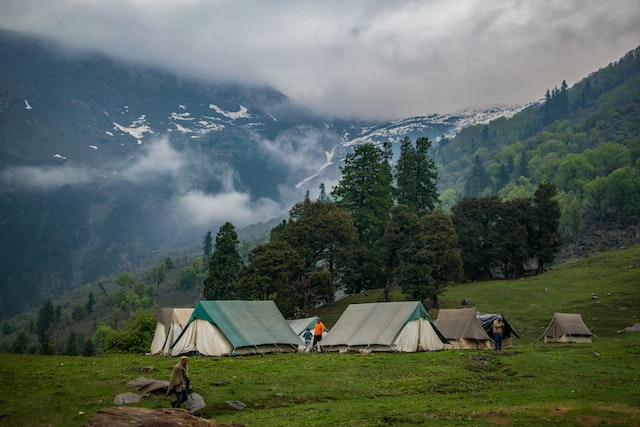
When you’re choosing a safe campsite, it’s important to consider factors like proximity to water, potential hazards, and access to emergency services. These factors play a crucial role in ensuring your camping experience is not only enjoyable but also safe.
First and foremost, when selecting a campsite, make sure it is close to a water source. Having easy access to water is not only convenient for cooking and cleaning, but it also ensures you stay hydrated throughout your trip. Additionally, being near water can provide a serene and peaceful environment, creating a sense of tranquility and belonging.
Secondly, be cautious of potential hazards in the area. Look out for things like steep cliffs, unstable ground, or overhanging branches that could pose a danger. It’s important to choose a campsite that is free from these hazards, ensuring the safety of both you and your camping companions.
Lastly, consider the accessibility to emergency services. While we all hope for a safe and incident-free camping trip, it’s essential to be prepared for any unforeseen circumstances. Make sure your campsite is within a reasonable distance to emergency services, such as hospitals or ranger stations, in case of emergencies.
By taking these factors into account, you can choose a safe campsite that provides both a sense of belonging and peace of mind. Remember, safety should always be a top priority when embarking on a camping adventure.
2. Properly Setting Up and Maintaining Your Campsite
To ensure a well-maintained campsite, you should start by properly setting up your camping gear. This will not only make your camping experience more enjoyable but also help keep you safe. Here are some tips to help you set up and maintain your campsite:
- Choose a level ground: Find a flat and even surface to set up your tent. This will prevent any discomfort during sleep and ensure stability.
- Clear the area: Remove any rocks, branches, or debris from the ground where you plan to set up your camp. This will create a safer environment and prevent any tripping hazards.
- Properly stake your tent: Securely anchor your tent using stakes to prevent it from being blown away by strong winds. This will keep you safe and protect your gear.
- Establish a fire ring: Create a designated area for your campfire by clearing away any flammable materials. This will help contain the fire and prevent it from spreading.
- Keep a clean campsite: Dispose of trash properly and store food in secure containers to avoid attracting unwanted wildlife. This will maintain a clean and safe environment for everyone.
By following these guidelines, you can ensure a well-maintained campsite that’s both safe and enjoyable. Happy camping!
3. Fire Safety and Prevention
One interesting statistic to consider is that nearly 85% of wildfires in the United States are caused by human activity, making fire safety and prevention crucial for preserving our natural landscapes. When you’re out camping, it’s important to be mindful of fire safety to protect yourself, others, and the environment.
Here are some tips to help you prevent fires and stay safe.
- Firstly, always check the fire regulations and restrictions in the area where you are camping. Follow any guidelines or restrictions set by the park or campground authorities.
- When selecting a campsite, make sure it’s away from flammable materials like dry grass or overhanging branches. Clear the area around the fire pit from any debris and create a fire ring using rocks or a metal fire ring.
- When starting a fire, use only designated fire rings or pits, if available. Keep the fire small and manageable, and never leave it unattended. Always have a bucket of water or a fire extinguisher nearby in case of emergencies.
- Once you’re done with the fire, make sure it’s completely extinguished by pouring water over the embers and stirring them until they’re cold to the touch.
By following these fire safety tips, you can enjoy a campfire responsibly and reduce the risk of wildfires. Remember, we all have a responsibility to protect our natural landscapes, so let’s camp safely and ensure the beauty of our outdoor spaces for generations to come.
4. Wildlife Awareness and Encounters
It’s crucial to be aware of the wildlife around you and to approach encounters with respect and caution. When camping, you are entering the animals’ territory, so it’s important to be mindful of their presence and take necessary precautions. Remember, we all share this planet, and by respecting wildlife, we can coexist peacefully.
Firstly, it’s essential to keep your distance. While it may be tempting to get closer for a better view or a photo, it’s best to admire wildlife from a safe distance. This not only ensures your safety but also avoids disturbing the animals in their natural habitat.
Secondly, make sure to store your food properly. Wildlife can be attracted to the smell of food, so store all food and garbage in airtight containers and keep them away from your camping area. This will help prevent unwanted encounters with animals searching for a snack.
Lastly, if you do come across wildlife during your camping trip, remain calm and avoid sudden movements. Back away slowly, giving the animal space to retreat. Remember, they are just as afraid of us as we are of them.
By following these guidelines, you can enjoy your camping trip while respecting the wildlife and ensuring everyone’s safety. Together, we can create a harmonious environment where both humans and animals can thrive.
5. Emergency Preparedness and First Aid
In case of an emergency, it’s important to have a well-stocked first aid kit and know basic first aid techniques. Here are three essential items you should have in your kit:
- Band-Aids and antiseptic wipes: These are perfect for treating minor cuts, scrapes, and blisters. Keeping wounds clean is crucial to prevent infection, so make sure to have plenty of these on hand.
- Pain relievers and allergy medication: Headaches, muscle aches, and allergies can put a damper on your camping experience. Including pain relievers like ibuprofen and allergy medication such as antihistamines can provide much-needed relief and help you enjoy your trip to the fullest.
- Tweezers and insect repellent: Insects are an inevitable part of camping, and sometimes you may encounter ticks or splinters. Having tweezers to remove ticks and splinters, along with insect repellent to prevent bug bites, will help keep you safe and comfortable.
Remember, accidents can happen even in the most prepared situations. By having a well-stocked first aid kit and knowing how to use it, you can be better equipped to handle any emergency that may arise during your camping adventure. Stay safe and have a fantastic time exploring the great outdoors!
Frequently Asked Questions
How can I protect my food from wildlife while camping?
To protect your food from wildlife while camping, store it in airtight containers and keep them locked in a secure cooler. Hang your food in a bear bag or use bear-resistant canisters. Never leave food unattended, as it can attract unwanted visitors.
What should I do if I encounter a bear while hiking or camping?
If you encounter a bear while hiking or camping, stay calm and slowly back away. Avoid direct eye contact and make yourself look bigger. Do not run or scream, as it may provoke the bear.
Are there any specific precautions I should take to prevent insect bites while camping?
To prevent insect bites while camping, keep the pests at bay with allegorical shields of bug spray, long sleeves, and pants. Embrace the sense of belonging in nature by taking these precautions and enjoying a bite-free adventure.
What are some essential items to include in a camping first aid kit?
Include items like bandages, antiseptic wipes, pain relievers, tweezers, and adhesive tape in your camping first aid kit. These essentials will help you treat minor cuts, scrapes, and headaches, and remove splinters.
How can I ensure the safety of my children while camping?
To ensure your children’s safety while camping, be a superhero! Always keep an eagle eye on them, use your super senses to spot potential dangers, and swoop in to protect them from harm.
Conclusion
So there you have it, fellow campers! By following these camping safety tips and advice, you can ensure a safe and enjoyable outdoor experience.
Remember, choosing a safe campsite, setting up your camp properly, practicing fire safety, being aware of wildlife, and being prepared for emergencies are all essential.
Don’t let fear hold you back from venturing into the great outdoors. With the right knowledge and precautions, you can embark on unforgettable camping adventures while staying safe and sound.
So pack your gear, embrace the wilderness, and let the magic of the outdoors captivate your soul!

